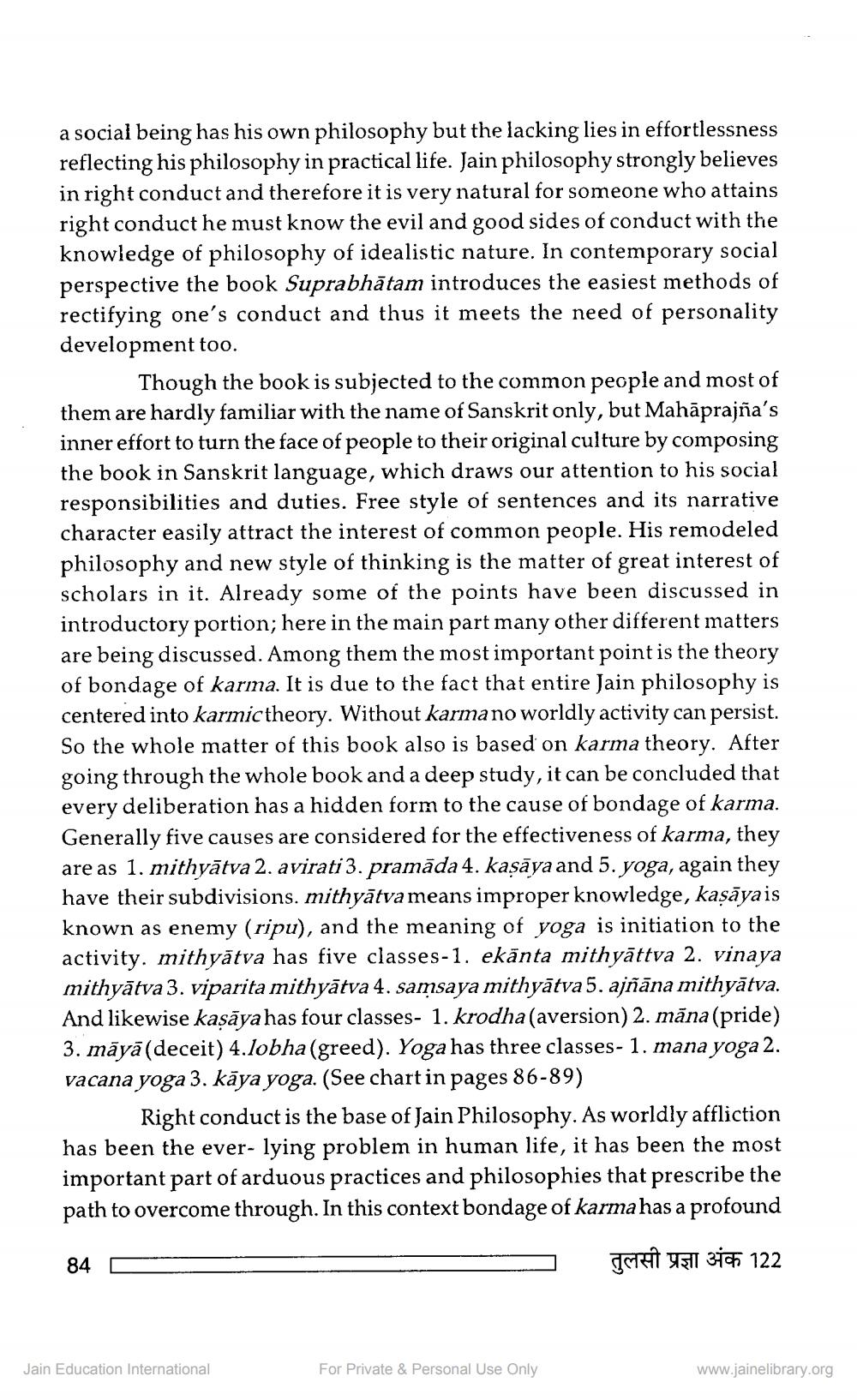________________
a social being has his own philosophy but the lacking lies in effortlessness reflecting his philosophy in practical life. Jain philosophy strongly believes in right conduct and therefore it is very natural for someone who attains right conduct he must know the evil and good sides of conduct with the knowledge of philosophy of idealistic nature. In contemporary social perspective the book Suprabhatam introduces the easiest methods of rectifying one's conduct and thus it meets the need of personality development too.
Though the book is subjected to the common people and most of them are hardly familiar with the name of Sanskrit only, but Mahāprajña's inner effort to turn the face of people to their original culture by composing the book in Sanskrit language, which draws our attention to his social responsibilities and duties. Free style of sentences and its narrative character easily attract the interest of common people. His remodeled philosophy and new style of thinking is the matter of great interest of scholars in it. Already some of the points have been discussed in introductory portion; here in the main part many other different matters are being discussed. Among them the most important point is the theory of bondage of karma. It is due to the fact that entire Jain philosophy is centered into karmic theory. Without karma no worldly activity can persist. So the whole matter of this book also is based on karma theory. After going through the whole book and a deep study, it can be concluded that every deliberation has a hidden form to the cause of bondage of karma. Generally five causes are considered for the effectiveness of karma, they are as 1. mithyātva 2. avirati 3. pramāda 4. kaṣāya and 5. yoga, again they have their subdivisions. mithyātva means improper knowledge, kaṣāyais known as enemy (ripu), and the meaning of yoga is initiation to the activity. mithyātva has five classes-1. ekänta mithyattva 2. vinaya mithyātva 3. viparita mithyātva 4. samsaya mithyātva 5. ajñāna mithyātva. And likewise kaṣāya has four classes- 1. krodha (aversion) 2. māna (pride) 3. māyā (deceit) 4.lobha (greed). Yoga has three classes- 1. mana yoga 2. vacana yoga 3. kaya yoga. (See chart in pages 86-89)
Right conduct is the base of Jain Philosophy. As worldly affliction has been the ever- lying problem in human life, it has been the most important part of arduous practices and philosophies that prescribe the path to overcome through. In this context bondage of karma has a profound
तुलसी प्रज्ञा अंक 122
84
Jain Education International
For Private & Personal Use Only
www.jainelibrary.org




